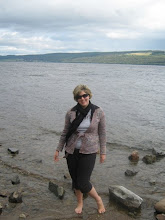Note: This entry is inspired from and a response to Nigerian author Chimamanda Adichie’s speech which can be found at: http://www.youtube.com/watch?v=D9Ihs241zeg.
I stopped blogging in Ghana because I didn’t know what stories to tell. During my semester in West Africa I experienced a great deal of pain and at the same time saw some of the best of humanity. I recognized very quickly that for most of my readers and friends I would be the sole “inside look” they had into Africa and I took my responsibility rather seriously. In blogging and telling stories I felt that people want to reconfirm their ideas that Africa is full of poor starving orphans who have never before seen white people. I met several orphans while in Ghana but I doubt that I saw more than five children who were in danger of starvation. The world just isn’t black and white.
One question that I commonly faced was “how were you treated in Ghana”? Lots of stories come to mind. I remember having nearly 1,000 marriage proposals. I ‘ll never forget being called “Madame Vanilla” at the Benin border. I remember being chased by beggars and vendors who assumed that I had money. I remember the many many times that I was called a “colonizer”. There was almost a binary that Americans were both better and worse than Ghanaians and I could never figure out which label applied to which social situation.
As humans I think that we are conditioned to make generalizations. In the field of International Development we are called to observe cultures x and y and make predictions about the plausibility of success of a project in culture z. In Puerto Rico I noticed that the first person I spoke with ended a conversation with “cuidate” [take care] and when a second and third person did such I started saying “cuidate”. This has gotten me into trouble before- my friends in England used the term “bell end” as an adjective implying that someone was a jerk. I heard “bell end” so often that I assumed everyone said it and I said it in front of a group of adults and was quickly told that it is an offensive term.
My experiences bring to mind the story of the blind men touching the elephant and each describing a different piece of the elephant as being a description of the whole elephant. What I experienced in England, Ghana, and Puerto Rico has been a collection of relationships and stories that give me a glimpse into what that elephant may look like.
My solution to combat the problem that Chimamanda Ngozi Adichie describes is to feel lots and lots of parts of the elephants. By travelling extensively and really listening to the people that I met I hope that the generalizations that I am forced to make will be well reasoned. As she suggests, I’m not going to listen to only one story. My experiences in my time abroad have shown me how complex are people and cultures. If we really want to understand we have to listen.
Wednesday, September 8, 2010
Subscribe to:
Post Comments (Atom)

No comments:
Post a Comment